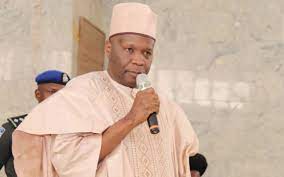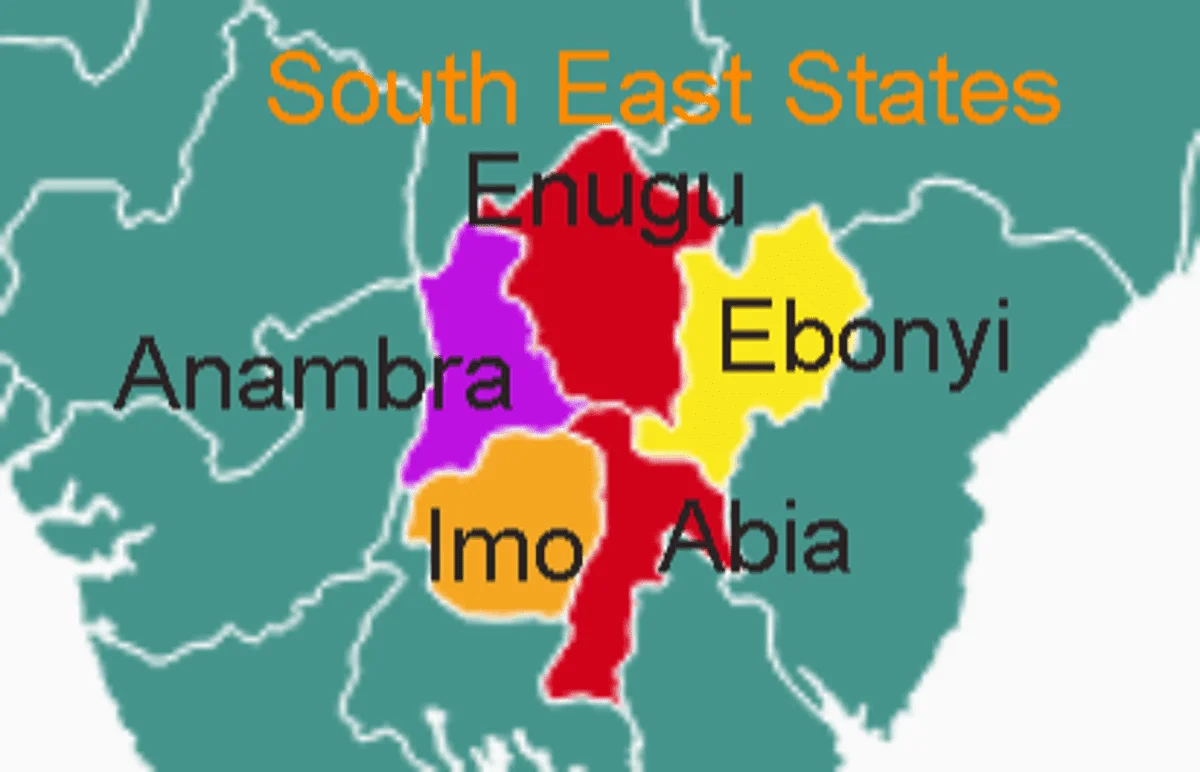CHINWE OGBUKA of the INEC information unit revisits the various engagements the commission had with some critical stakeholders ahead of its preparation for the 2015 general elections
Engaging stakeholders
In the past weeks, the Chairman of the Independent National Electoral Commission (INEC), Prof. Attahiru Jega had engagement with different groups of people at different gatherings but addressing similar issues. He spoke passionately on what the commission has been doing since 2010, when the present INEC came on board. All through those encounters, the chairman spoke variously on the forthcoming 2015 general elections, an issue that has dominated discussions in the media and the entire nation.
Since INEC released the timetable for the 2015 and those of governorship elections in Ekiti and Osun states, there has been talks about the commission’s readiness or otherwise to conduct next year’s poll. Some of the critics even question the competence of the present INEC to conduct the election while some others address some of the issues that impinge or likely to affect the activities of the Election Management Body (EMB).
It is against this background that the chairman has been invited by certain organizations/ groups to speak on what INEC is doing towards ensuring credible polls in 2015. Their invitation was based on the concerns about the task ahead and the fears being expressed in some quarters on ahead of 2015. They see the election as a determinant to the existence of the entity called Nigeria.
The Media
The first group the chairman encountered is one of the major critical stakeholders – the media. He had an interactive session with the editors in Lagos where he briefed them on INEC’s preparations for the conduct of 2015 general elections. Jega explained in detail what the commission has been doing after the 2011general elections and preparations to ensure freer, fairer, credible and more peaceful elections in 2015.
Part of the briefing was also on the innovation the commission has put in place to ensure it has a credible voter register, which is very critical in having credible elections, Continuous Voter Registration (CVR) and other measures to secure the electoral materials and other fundamental changes aimed at reforming the electoral process.
Inaugural public policy lecture
After the parley with the media executives, the INEC boss was at Eko Hotel and Suites to present a paper at an Inaugural Public Policy Lecture by the Alumni Association of National Institute (AANI) Lagos Chapter. The theme of the Policy Lecture is, “Building Credible Electoral Process for Democratic Sustainability” and the Chairman spoke on the topic “Towards Credible Elections in 2015: INEC’s Preparations, Prospects and Challenges.”
He described the theme of the lecture as timely as the nation prepares for the general elections . The erstwhile university administrator expressed the hope that, with the caliber of participants, the forum will generate good ideas on how to add to the credibility of the electoral process. Credible elections, according to the chairman, are central to the enthronement of good governance and democratic sustainability.
He told the gathering that the immediate objective of his team on assumption of office in 2010 was to restore credibility to electoral process based on the fact that quality of Nigeria’s elections was progressively declining, adding that “Our goal for 2015 is not just to make the elections much better than 2011, but also in compliance with global best standards.”
Pre-2011 reform
For the record, some of the electoral reform measures introduced by the commission prior to 2011 general elections, which brought about the improvement in the election include but not limited to; production of a new biometric register of voters, introduction of a Re-Modified Open Ballot System (REMOBS), Improved security features on sensitive electoral materials such as serial numbering and colour- coding of ballot papers, result sheets as well as security coding of ballot boxes.
Others include enhanced voter education and citizens engagement, more transparent procedures on election day, including pasting of results at polling units and collation centre, creation of the Inter-Agencies Consultative Committee on Election Security (ICCES) to ensure coordinated engagement of all security agencies during election periods.
It is important to note that preparations for the 2015 general elections began almost immediately after the 2011 elections; hence the reforms being introduced by the commission to have a better result in next year’s poll. As Jega puts it, “the principles underlying our preparations for 2015 has been to consolidate the gains of 2011, while preventing a reoccurrence of its weaknesses.”
To assure his audience of the commission’s seriousness to make 2015 an improvement over previous elections, Jega enumerated some of its plans and programme of activities to achieve its goal. These include among others: a strategic Plan (2012-2016), which is a detailed Election Project Plan (EPP)- the implementation of which will ensure seamless execution of specific tasks leading to the 2015 elections, a comprehensive re-organization and restructuring of the commission, consolidation and de-duplication of the biometric Register of Voters has been completed , the register has tremendous integrity and compares favourably with the best register of voters on the African continent.
The rest are; CVR to be carried out nationwide to get all eligible voters on electronic register before 2015 elections and the commission will not use addendum register for elections again, issuance of chip-based Permanent Voters Cards (PVC), which will be swiped with card readers in the 2015 elections to ensure 100 percent verification and authentication of voters, a communication Policy/Strategy designed to improve both internal and external communication by the commission and an electoral Risk Management Tool will be deployed ahead of the 2015 elections to enable the commission gather information about risk factors associated with elections.
Challenges
There are however, challenges ahead of the 2015 elections which the chairman never pretended about as he spoke at the forum. The challenges are security, funding, attitude of the political class described as key challenge confronting the electoral system which is of great concern to the commission. This is so because even if the management of elections meets the highest standards, as far as the contestants do not play by the rules, there is definitely going to be problems.
The chairman also mentioned other residual challenges which if not properly addressed would affect the general elections. These are pending Amendment to the Constitution and the Electoral Act, Review of Electoral Constituencies and polling units and prosecution of Election offenders.
But he informed the gathering that “our preparation in INEC gives us the confidence that the 2015 elections will be much better than 2011; Indeed, they will compare favourably with credible elections anywhere in the world.
“We are painstaking with our plans, and we are introducing new processes that are designed to check the abuses of the past. We are determined in INEC, to ensure that the will of Nigerians are actualized in the 2015 elections.”
At MAF
The chairman also took the commission’s message to Ilorin, Kwara State at a Public Lecture/Book Launch by the Mustapha Akanbi Foundation (MAF). At the event he spoke on “Challenges of Fraud-Free Elections under a Democratic Dispensation.”
From his presentation, it is obvious that the challenges of conducting fraud-free elections under a democratic dispensation are not different from other challenges earlier listed which , he assured the commission is working hard to address. Based on the well articulated plans and strategies INEC is developing, it is believed the 2015 general elections will definitely be much better than the previous elections.
This , he declared at MAF when he said: “These challenges are not insurmountable and we will spare no efforts to ensure that the aspirations of Nigerians for free, fair, credible and peaceful elections are actualized in 2015.”
“As far as INEC is concerned, the 2015 general elections will see Nigeria take its rightful place in the global comity of nations where electoral democracy is being consolidated,” the Chairman stated but emphasized that it is not a task for INEC alone, as all stakeholders have important roles to play.
IBB Golf Club
In view of the interest 2015 has generated as another election year of Nigeria, members of the IBB International Golf & Country Club, Abuja equally invited the former vice chancellor to speak on INEC and 2015 elections. The paper was entitled “2015 General Elections: INEC’s Readiness, Challenges and Way Forward.”
At the event, Jega again reiterated the commitment and readiness of the commission to give Nigeria the best election that will be acceptable globally provided all other stakeholders in the electoral process, including the electorate play their roles effectively. In fact, the objective of INEC for 2015 is not just to make the elections much better than those of 2011, but also in compliance with global best standards.
It is therefore not surprising that the commission is seriously factoring the lessons learnt in previous elections into its preparations for 2015.
Lessons learnt
Jega listed those lessons to include , among others ;that good elections require adequate and timely planning , that good elections are about effective partnerships and cooperation with relevant agencies, that good elections are about openness, that is to be open to new ideas that support creativity and be open to stakeholders, and as well as getting our elections right is work in progress, hence the commission commenced.
INEC’s optimism on 2015
On the way forward, Prof. Jega said confidently that “Our preparations in INEC give us the confidence that the 2015 elections will be much better than 2011; indeed they will compare favourably with credible elections anywhere in the world. We are painstaking with our plans, and we are introducing new processes that are designed to check the abuses of the past.”
Judging by the measures the commission is putting in place and the zeal with which the commission is preparing for the 2015 general elections; and if other stakeholders, especially the political class and the electorate play their parts, come next year, Nigeria will take her rightful place in the global order of nations where electoral democracy has come of age.
“Ensuring free, fair and credible elections is not a task INEC alone can deliver. All stakeholders have important roles to play, and we must strengthen partnerships and collaborative endeavours to bring this about, ” Jega assured



